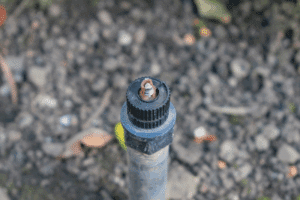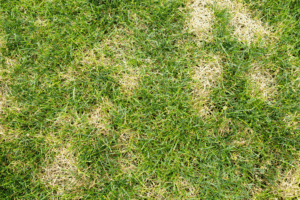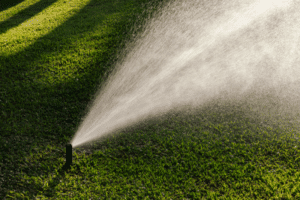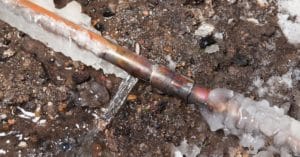If you’re noticing sprinkler system problems in your Cleveland yard, you’re not alone. Many homeowners encounter issues such as uneven watering, broken heads, or low pressure, and these sprinkler system problems can quickly turn a lush lawn into a patchy mess.
The good news? Most issues can be fixed with a bit of troubleshooting and regular maintenance. Let’s explore the most common sprinkler system problems in Cleveland and how you can solve them before they get worse.
1. Clogged or Broken Sprinkler Heads

Clogged or broken sprinkler heads are among the most common causes of poor irrigation performance. When a head is clogged with dirt, grass clippings, or hard water deposits, it can’t spray water evenly. Similarly, a cracked or broken sprinkler head, often caused by lawnmowers, foot traffic, or pets, can leak or stop working entirely.
Signs to Watch For:
- Water spraying erratically or not at all
- Pooled water near the base of the sprinkler
- A visibly damaged or sunken head
How to Fix It:
- Turn off the system and inspect the head for dirt or debris. Clean it out with water or a soft brush.
- Replace the sprinkler head if it’s cracked or won’t pop up.
- Ensure the head is level with the ground so it doesn’t become a trip hazard or mowing obstacle.
2. Low Water Pressure

Low pressure is another common sprinkler system problem that reduces system efficiency. You might notice water barely coming out, or a fine mist instead of a steady spray, which can increase evaporation and waste water.
Common Causes:
- Leaks in underground pipes or above-ground hoses
- Crushed or kinked pipes from tree roots or heavy equipment
- Faulty or partially closed valves
- Excessive buildup inside the pipes
How to Fix It:
- Walk along the system’s path and look for wet patches or bubbling water, which could indicate leaks.
- Turn off the water and flush the line to clear out any blockages.
- Check and adjust any valves that might be restricting flow.
- If your home’s water pressure is low overall, consider installing a booster pump.
3. Uneven Watering or Dry Spots

Are parts of your lawn thriving while others look thirsty? Uneven watering usually means your sprinkler heads are misaligned or not rotating properly. Sloped yards or poor head placement can also cause this issue.
Signs to Look For:
- Green, lush grass near some heads and dry, yellow patches in others
- Sprinkler heads spraying into sidewalks or driveways
- Runoff in low-lying areas
How to Fix It:
- Rotate sprinkler heads to aim directly at the grass and avoid hard surfaces.
- Add risers to elevate heads blocked by growing shrubs or tall grass.
- Replace fixed spray heads with rotating ones for broader, more even coverage.
- Test your system during a watering cycle and adjust the arc or distance as needed.
4. Sprinkler System Won’t Turn On or Off

If your system doesn’t respond to your controller, it’s likely due to an electrical or programming issue. This can be frustrating, especially during hot spells when your lawn needs consistent watering.
Potential Causes:
- A malfunctioning controller or dead battery
- Cut or damaged wiring
- Faulty solenoid valves
- Incorrect programming settings
How to Fix It:
- Double-check that your timer is set to the correct time and watering schedule.
- Replace the controller’s backup battery if the display is blank or flashing.
- Inspect wiring connections for corrosion or damage.
- Use a multimeter to test the solenoid valve. Replace it if it’s not receiving power.
5. Seasonal Damage from Freezing Temperatures

In Cleveland, winter brings freezing temperatures that can wreak havoc on an unprepared sprinkler system. When water is left in the pipes, it expands as it freezes, leading to burst lines, cracked fittings, and broken valves come spring.
Warning Signs in Spring:
- New leaks or soggy spots in your yard
- Sprinkler heads that won’t pop up
- Air or sputtering water when the system starts
How to Prevent It:
- In the fall, shut off your system’s water supply and use an air compressor to blow out any remaining water.
- Open all manual drain valves.
- Insulate any above-ground plumbing components.
- Schedule a professional winterization service if you’re unsure how to do it yourself.
Conclusion
Sprinkler system problems can sneak up on you, but with the right approach, they’re usually manageable. Whether it’s a clogged head, low water pressure, or winter damage, quick fixes and regular upkeep can make a big difference.
Still, if the issue persists or you’re not sure where to start, calling a local irrigation expert in Cleveland can save you time and prevent costly lawn damage. A professional can inspect your system, make targeted repairs, and ensure your sprinklers are working efficiently all season long.
